Solution
Sustainability Data Cloud
Easily manage sustainability data and support compliance with ESG standards by leveraging Stibo Systems Platform’s Sustainability Data Card framework.

Gain a single view of your sustainability data
Collecting and managing data for sustainability reporting can be challenging. Sustainability data is scattered across many sources, and the number of reporting standards, assessments, disclosures and certifications is daunting. There are already more than 600 standards for companies, products, processes and partners, and they will continue to evolve.
This fragmented data ecosystem makes it difficult to collect, manage and report sustainability information efficiently and accurately, hindering companies' ability to meet regulatory requirements and stakeholder expectations.
Stibo Systems Sustainability Data Cloud combines Sustainability Data Cards with Stibo Systems Platform’s master data management (MDM) capabilities to create a comprehensive solution for managing and evaluating sustainability data across products, suppliers and materials.
This configurable framework combines your company’s master data with sustainability data in a single view, allowing companies to efficiently assess performance against various standards and compliance requirements while maintaining the flexibility to adapt to evolving sustainability regulations.
Solution sheet
How Sustainability Data Cards work
By applying master data discipline to sustainability data, you can create a sustainability profile for your business to meet your compliance and reporting requirements. The Sustainability Data Card is a framework within Stibo Systems Platform that pulls together your master data and your sustainability assessment into one view.
The data card allows you to see exactly how a particular product or factory, for instance, is performing against certain standards. Your master data and the sustainability requirements you are measured against are linked in the data card to provide you with a single view of managed sustainability data without overloading your core information with dozens of additional attributes.
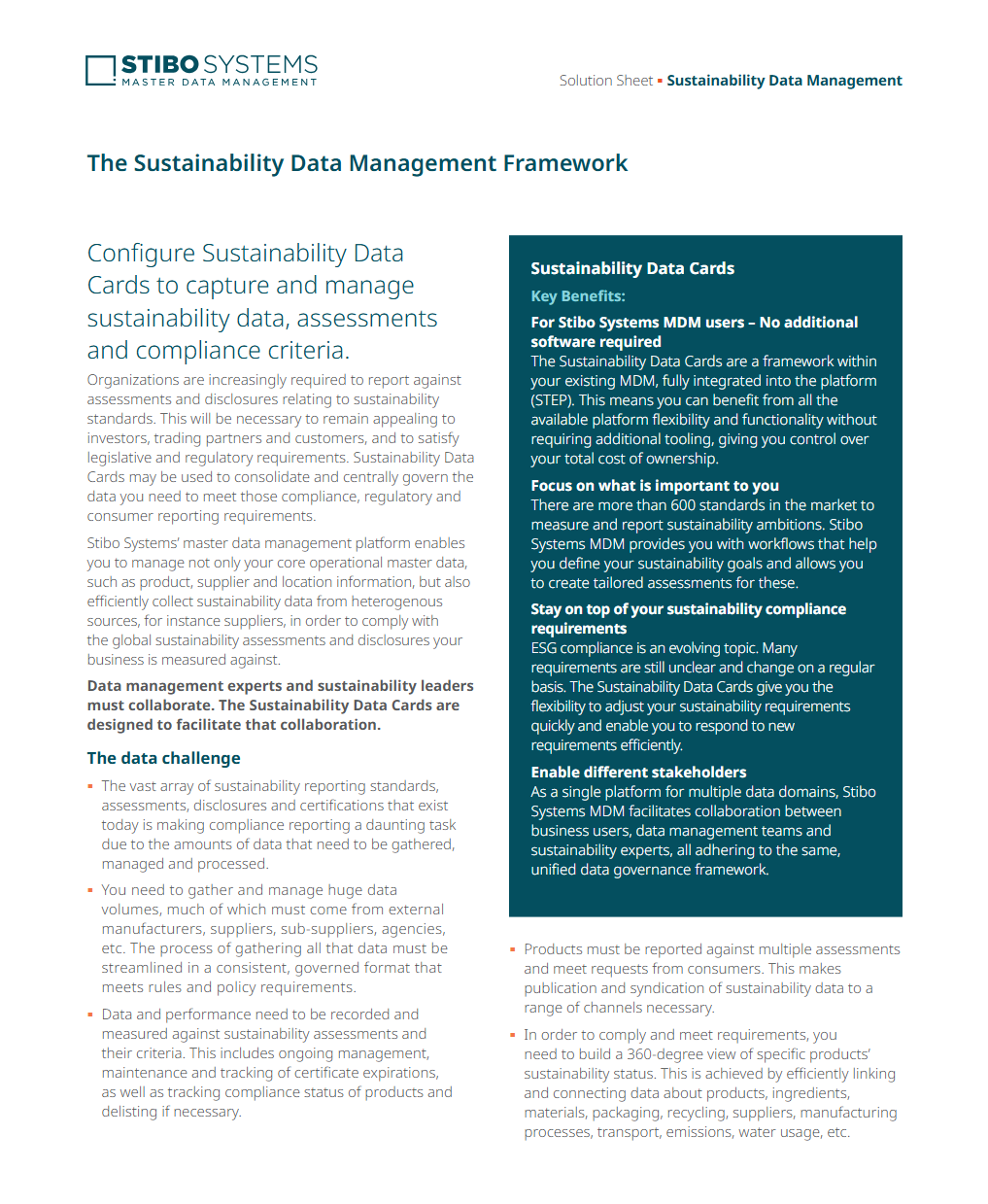
Why Stibo Systems Sustainability Data Cloud
Centralize sustainability data
Integrate with sustainability data sources and providers. Reduce effort to collect and maintain sustainability data. Create a single central source of sustainability data to fuel ESG reports and disclosures.
Ensure data governance
Work with defined models and emerging standards. Make sustainability data an integral part of everyday processes. Apply robust data and process governance, approval workflows and stewardship.
Enrich supplier profiles
Ingest third-party data to enrich your supplier profiles from business rating agencies, such as EcoVadis, SupplyShift and D&B ESG Intelligence, and append your supplier sustainability profiles with authorized data to identify ESG risks and evaluate suppliers for ESG compliance.
Features
Simplify sustainability data management with Stibo Systems
The Sustainability Data Card explained
1. General information (e.g., on your product, supplier etc.) derived from your MDM.
2. A list of the assessments the product is measured against, including the product's completeness status for assessment criteria.
3. Additional master data references that are relevant for sustainability assessment (e.g., location, packaging and material).
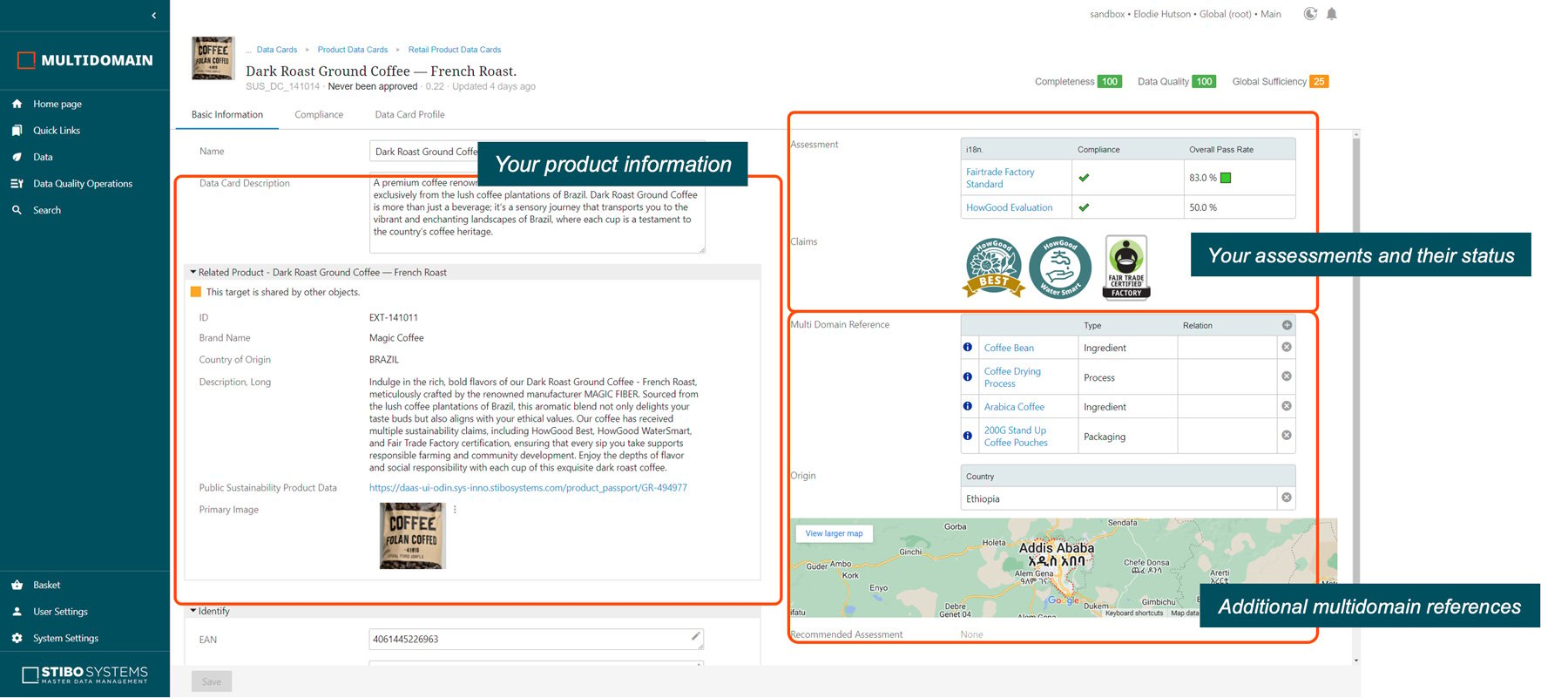
Multidomain data management
Stibo Systems Platform is designed to consolidate and unify data about products, suppliers, locations, assets and customers. It offers data governance capabilities that can help you achieve sustainability goals:
- Collect, harmonize, connect, govern and share data
- Take advantage of a flexible open data model
- Build hierarchies and inheritance of values
- Set up business rules and approval workflows
- Design your own scorecards and dashboards
- Aggregate and publish to multiple formats and reports
- Enable data stewardship, quality and governance
- Integrate with any business application or third-party software
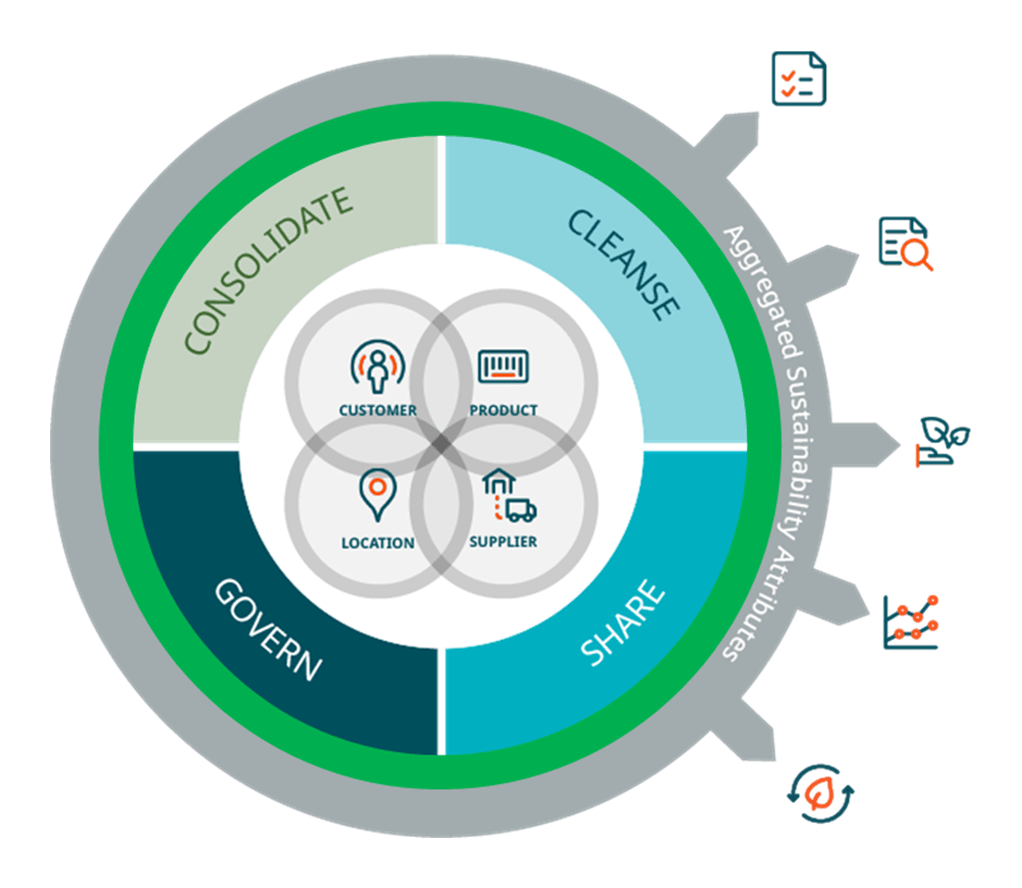
Data governance
Data governance principles facilitate the necessary collaboration between business and sustainability teams.
- Sustainability specialists decide which goals your products or suppliers need to be measured against.
- Data experts build the assessments in the MDM platform.
- The sustainability specialists review and approve the assessments.
- Finally, the sustainability officer applies assessment to relevant data cards.
In this process, all the data governance capabilities of MDM can apply, including data quality, workflow, approvals, renewal reminders, sufficiency criteria, stewardship and audit trail.
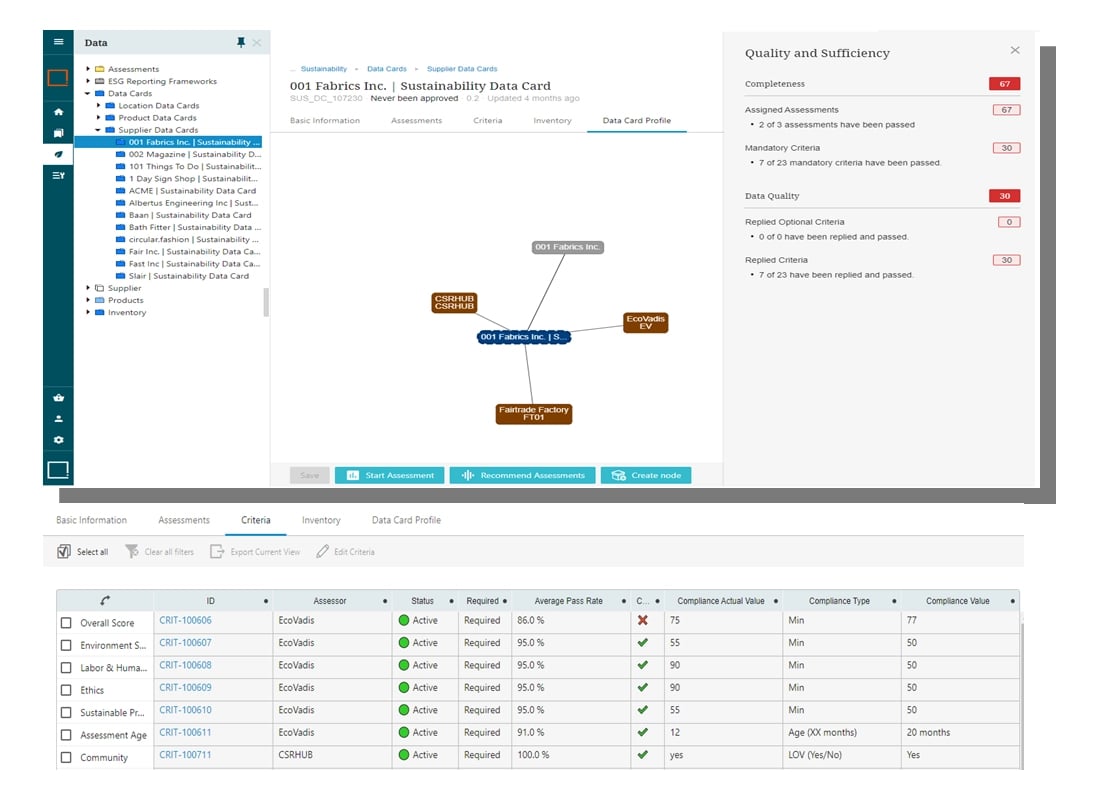
Separation of concerns
The separation of product information and sustainability data ensures performance and simplicity of data management. It also enables collaboration between product owners and sustainability data specialists, without impacting business-as-usual functions.
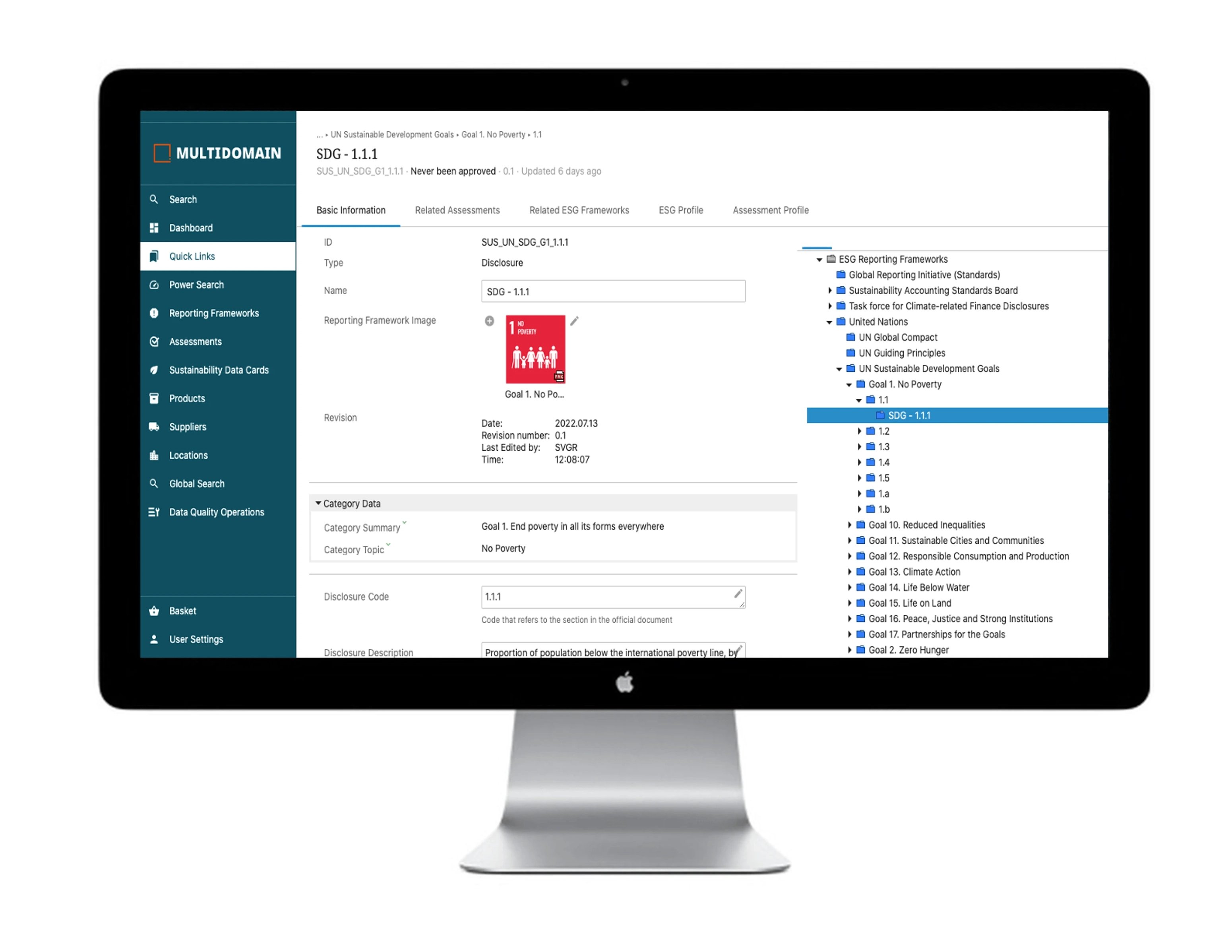
Sustainability data model
The Sustainability Data Model enables you to define assessments and the associated compliance criteria and then record, on the Data Card, the compliance information related to products, suppliers and locations needed to complete sustainability reports – without reconfiguring or recoding your product information management (PIM).
In fact, you can use this framework to manage any kind of regulatory compliance, not just sustainability.

Partnerships

In 2022, environmental sustainability became a top 10 business priority for the first time ever, with 9% of the respondents naming it as one of their top three.
*Gartner, “CEO Survey: Sustainability and ESG Become Enduring Change”, Kristin Moyer, Simon Mingay, Sarah Watt, Mark Raskino, May 6, 2022.GARTNER is a registered trademark and service mark of Gartner, Inc. and/or its affiliates in the U.S. and internationally and is used herein with permission. All rights reserved.

Customer references you can trust
Unlock the power of your sustainability data through better data management.
Ready to explore further?
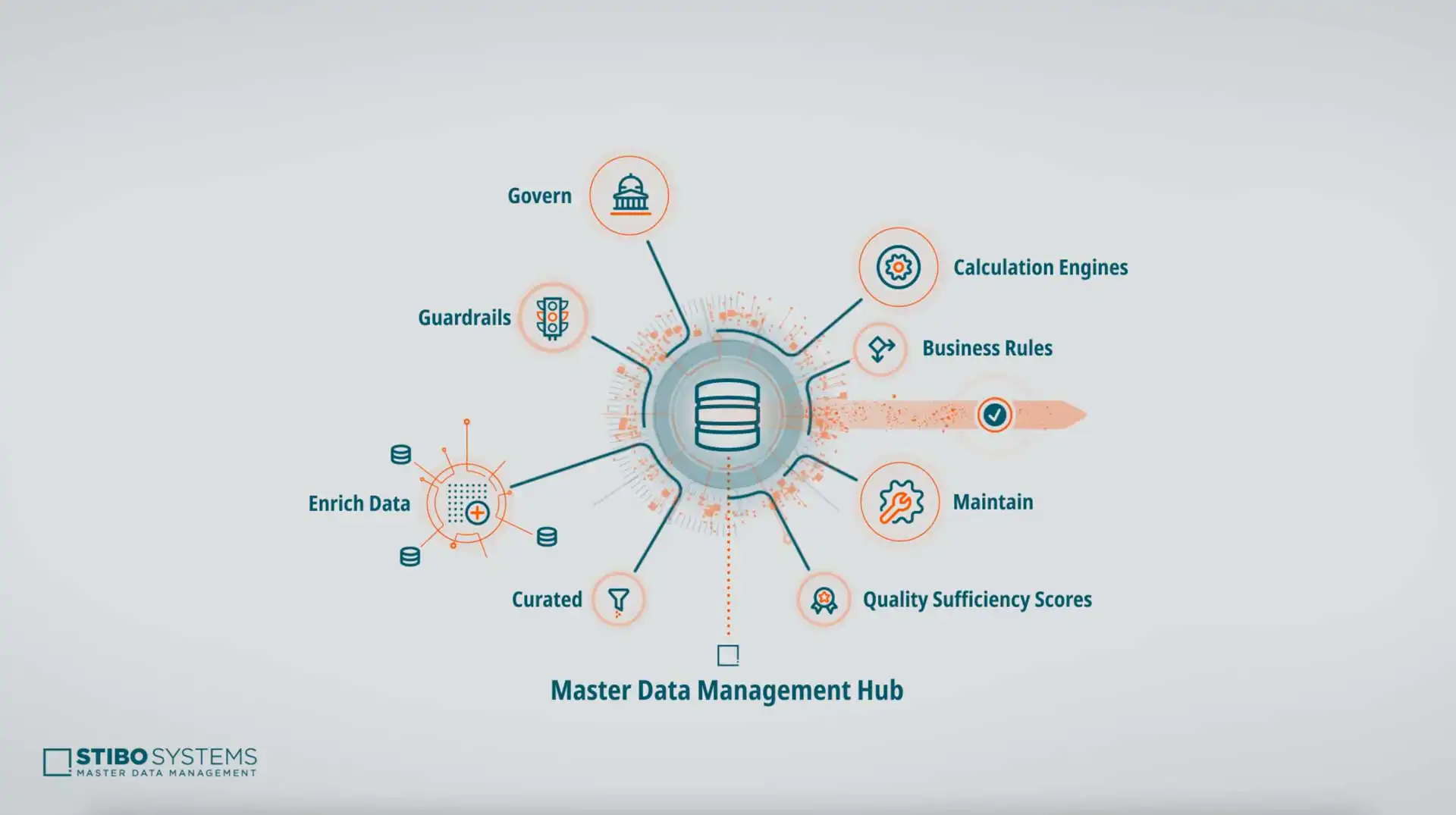


Ready to see more?
Let's talk about how master data management can drive growth, efficiency and transformation in your business.